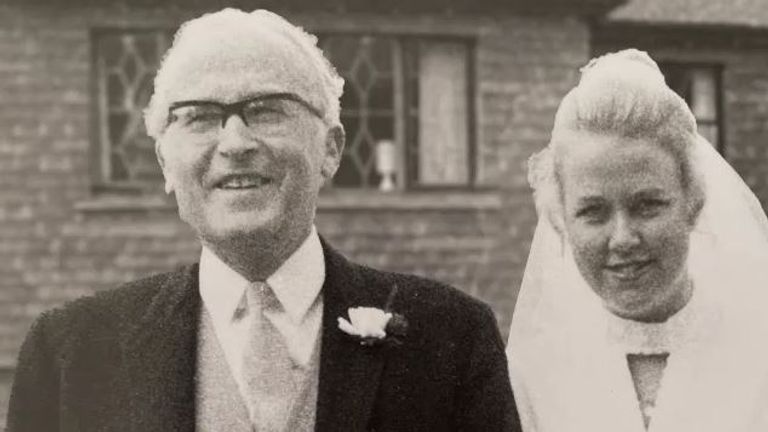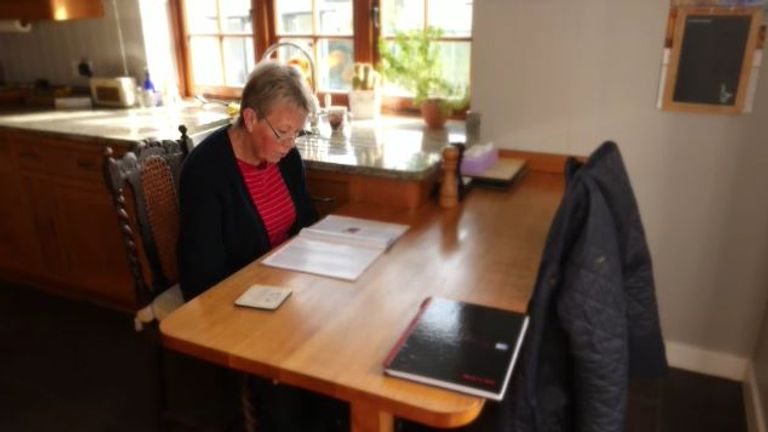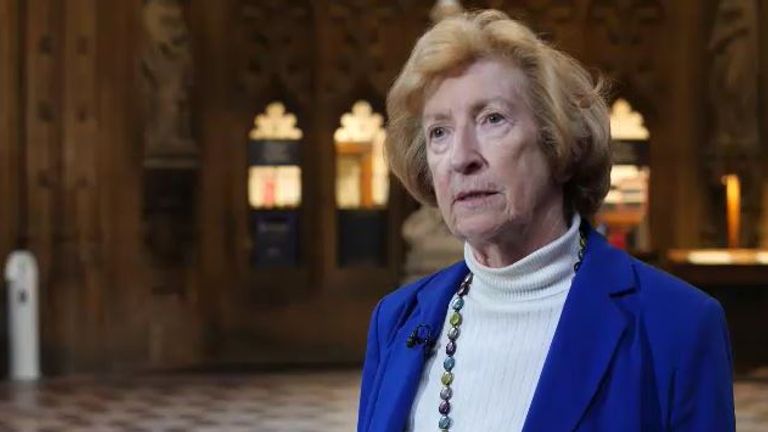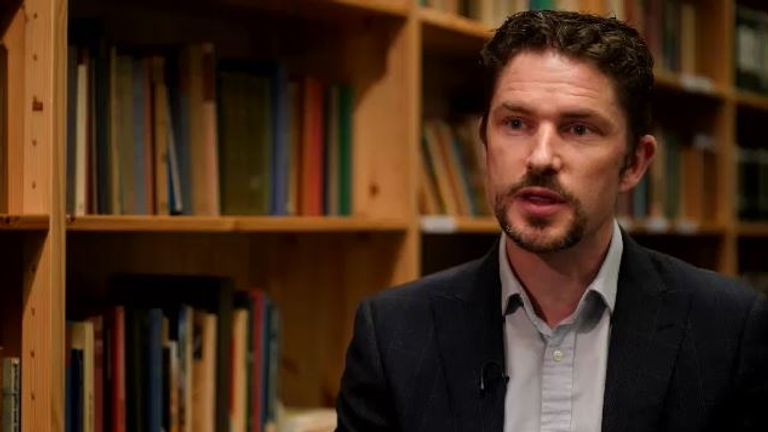When Suzie Jee was in her 20s, her father George announced he was going out to get the lawnmower fixed.
He never came home.
George had terminal cancer and had already made the decision to end his own life, unbeknown to his family.
His death had a profound impact on Suzie, who is still angry that he felt forced to make such an impossible choice.
"He died alone in his car," she told Sky News.
"I felt very angry that he had to do that.
"He was in such pain that he felt he couldn't go on and didn't want to go through the indignities of his illness at the end of his life.
"I had to go and identify his body… my mother was in a horrendous state. What he must have gone through... he shouldn't have had to do that."
Now, decades on, Suzie has been diagnosed with terminal cancer and faces the same agonising questions her father did.
Her experience as a nurse, and knowing what her father went through, has led her to campaign for assisted dying to become legal in England and Wales.
"Having seen so many people suffer at the end of their lives, and my dad's experience, I really, really feel that I want to have some dignity in my life at the end of my life," she said.
"I don't feel afraid of dying.
"I think it's something that perhaps is pushed under the carpet in this country terribly in that people don't like talking about dying… but I think the more you talk about it and bring it into the open, the easier it becomes to accept life ends at some point for every single one of us on this planet."
Suzie wants those with a terminal illness and a short time left to live to be given the right to choose when they die by taking lethal drugs prescribed by a doctor.
A new law being debated in the House of Lords would pave the way for this to happen, as long as two doctors agree that the person is mentally competent, has fewer than six months left to live, and actively wants the right to choose. The process would also be overseen by a High Court judge.
Baroness Meacher, who has proposed the change, said the current law "generates cruelty".
She said in a small number of cases, where all the safeguards are met, people should be given the right to end their own lives, as is the case in some other countries around the world.
Speaking to Sky News she said that an assisted dying law is not the end of the conversation, adding: "We want investment and the highest quality palliative care.
"In countries like Australia and parts of America, the passing of assisted dying laws is accompanied by a major investment in palliative care - we want that too."
But there are concerns about opening the door to assisted dying.
Some fear allowing people to choose would result in them feeling pressured to end their lives rather than be a burden to their families.
Others are worried about the impact on the medical profession, which would have to oversee the change, and how doctors, nurses and others would cope with helping people to end their lives.
Dr Mark Pickering, chief executive of the Christian Medical Fellowship, said allowing a small group of people to end their lives if they want to would have a much larger impact on society.
"If we do legalise assisted dying, it won't just be for a small group of people who really want it. It will mean that every end of life conversation and every GP surgery, every hospice around the country will have to take that into account," he told Sky News.
"Every elderly or disabled person when they're talking about their end of life options, they have to say: 'and have you thought about assisted suicide?'.
"They may never have thought about it, they may feel burdened to do that - it may be that they don't want to fritter away their life savings on care costs and they will feel that the right to die for them will become the duty to die."
Others, including Baroness Finlay, who is opposing the change in the House of Lords, are concerned that the bill does not go far enough to set out how the safeguards would work and how people would be allowed to die.
The arguments for and against are controversial and complex but Scotland could lead the way in navigating them if a vote on assisted dying goes ahead there in around 18 months' time.
Campaigners believe the vote could pass, putting Scotland in line to be the first part of the UK to allow people to choose to die if they are terminally ill.
For campaigners, that decision would be welcome, as they believe it would pave the way for a law change in England and Wales too.









